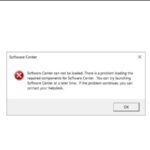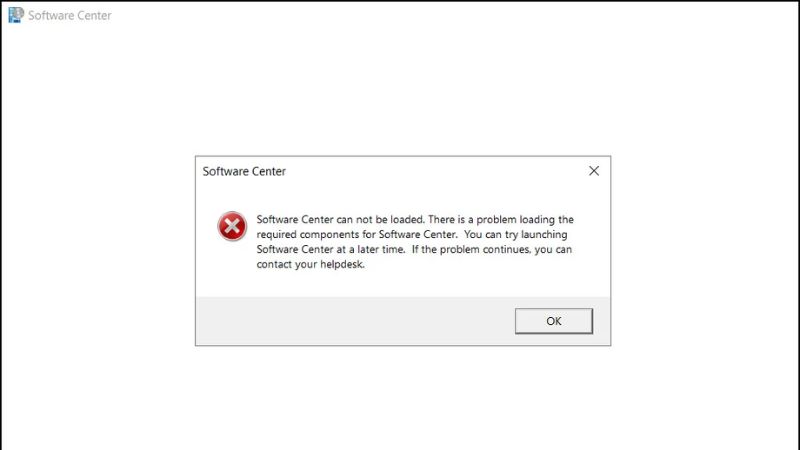Electronic Signature Software: Everything You Need to Know
In today’s digital world, electronic signatures are becoming increasingly popular and widely accepted. Electronic signature software plays a crucial role in streamlining workflows, enhancing security, and enabling businesses to operate efficiently. Whether you’re a small startup or a large corporation, understanding the benefits and considerations of electronic signature software is essential. This comprehensive guide will delve into all aspects of electronic signature software, empowering you to make informed decisions and leverage this technology to its full potential.
What is Electronic Signature Software?
Electronic signature software, also known as e-signature software, is a digital tool that allows individuals to electronically sign documents. This software uses encryption and other security measures to ensure the authenticity and integrity of the signature. By replacing traditional pen-and-paper signatures, e-signature software significantly accelerates document workflows and simplifies the signing process.
Key Features of Electronic Signature Software
Electronic signature software typically offers a range of features designed to meet diverse business needs. Here are some key features you can expect to find:
- Digital Signature Creation and Validation: Securely generate and validate electronic signatures, ensuring the authenticity and legitimacy of documents.
- Document Management and Storage: Centralize document management, allowing easy access, organization, and storage of signed documents.
- Workflow Automation: Streamline the signing process by automating document routing, approvals, and notifications.
- Audit Trail and Reporting: Track all document activity, providing complete audit trails for compliance and security purposes.
- Integration with Other Applications: Seamlessly integrate with popular business applications such as CRM, ERP, and cloud storage platforms.
- Security and Compliance: Meet industry standards and regulations, including HIPAA, GDPR, and eIDAS, to ensure data privacy and protection.
Benefits of Electronic Signature Software
Adopting electronic signature software offers numerous advantages for businesses of all sizes. Some of the key benefits include:
Increased Efficiency and Productivity
- Faster Signing Process: Eliminate the need for physical documents, reducing turnaround times and accelerating workflows.
- Reduced Paperwork: Go paperless, saving costs associated with printing, storage, and postage.
- Improved Collaboration: Enable remote teams to collaborate seamlessly, signing documents from anywhere in the world.
Enhanced Security and Compliance
- Improved Document Integrity: Encryption and digital certificates protect documents from tampering and unauthorized access.
- Audit Trails for Compliance: Maintain a clear record of document activity, ensuring compliance with legal and regulatory requirements.
- Reduced Risk of Fraud: Secure signature verification and authentication minimize the risk of fraudulent activities.
Improved Customer Experience
- Convenience for Customers: Provide customers with a simple and intuitive signing experience, available anytime and anywhere.
- Faster Response Times: Accelerate the signing process, leading to faster transaction completion and improved customer satisfaction.
- Improved Customer Relationships: Foster trust and transparency by using secure and reliable e-signature solutions.
Cost Savings
- Reduced Printing and Mailing Costs: Eliminate the need for physical documents, saving on printing, paper, and postage expenses.
- Improved Efficiency: Streamlined processes and reduced paperwork lead to significant cost savings in the long run.
- Reduced Error Rates: Automated workflows and accurate signature verification minimize human error and associated costs.
Types of Electronic Signature Software
Electronic signature software comes in various forms, each tailored to specific needs and requirements. Here’s a breakdown of the different types:
1. Standalone E-Signature Software
Standalone e-signature software operates as an independent application, offering comprehensive e-signature functionality without the need for integration with other systems. This type is ideal for businesses with simple signing needs and limited software integration requirements.
2. Cloud-Based E-Signature Software
Cloud-based e-signature software is hosted on a remote server and accessed through web browsers. This type offers scalability, accessibility, and affordability, making it suitable for businesses of all sizes. Cloud-based solutions are particularly advantageous for remote teams and distributed workforce environments.
3. Integrated E-Signature Software
Integrated e-signature software seamlessly integrates with existing business applications, such as CRM, ERP, and document management systems. This type of software streamlines workflows by eliminating the need to switch between multiple platforms and simplifies document signing within familiar interfaces.
4. Mobile E-Signature Software
Mobile e-signature software allows users to sign documents on their smartphones or tablets. This option provides flexibility and convenience, enabling document signing from anywhere with an internet connection. Mobile e-signature software is particularly valuable for field workers, sales representatives, and individuals on the go.
Key Considerations for Choosing Electronic Signature Software
Selecting the right electronic signature software for your organization requires careful consideration of several factors. Here are some crucial aspects to evaluate:
1. Features and Functionality
- Signature Types: Determine the types of signatures supported, including simple signatures, advanced signatures, and qualified signatures. Consider if the software offers features like multiple signers, conditional signing, and signature reminders.
- Document Formats: Ensure compatibility with the document formats you commonly use, such as PDF, Word, and Excel. Check if the software supports file size limits and encryption options.
- Workflow Automation: Evaluate the software’s ability to automate document routing, approvals, and notifications. Consider the level of customization available for creating workflows and setting approval processes.
- Integration Capabilities: Determine if the software integrates with your existing business applications, such as CRM, ERP, and cloud storage platforms. This integration can streamline workflows and eliminate data silos.
- Audit Trail and Reporting: Assess the level of detail provided in audit trails, including timestamps, IP addresses, and signature verification details. Consider the reporting capabilities and the ease of generating compliance-ready reports.
2. Security and Compliance
- Security Standards: Ensure that the software adheres to industry security standards, such as ISO 27001, SOC 2, and GDPR. Verify the use of encryption, digital certificates, and multi-factor authentication.
- Compliance Certifications: Determine if the software is compliant with relevant regulations, such as HIPAA, eIDAS, and ESIGN, ensuring legal validity and data privacy.
- Data Privacy and Protection: Understand the software provider’s data privacy policy and data storage practices. Ensure that your data is protected and handled in accordance with your company’s policies.
3. User Experience and Ease of Use
- Intuitive Interface: The software should have a user-friendly interface that is easy to navigate and understand, both for senders and recipients.
- Mobile Compatibility: Consider the availability of a mobile app for signing documents on smartphones and tablets, enhancing accessibility and convenience.
- Support and Documentation: Evaluate the quality of customer support and documentation provided by the vendor. Consider the availability of training resources and online support forums.
4. Pricing and Scalability
- Pricing Models: Compare pricing plans based on features, number of users, and document volume. Consider the availability of free trials or discounts.
- Scalability: Evaluate the software’s ability to accommodate future growth and increased document volume. Ensure that the solution can scale with your business needs.
- Cost of Ownership: Consider the total cost of ownership, including subscription fees, implementation costs, and ongoing support expenses.
Leading Electronic Signature Software Providers
The market for electronic signature software is highly competitive, with numerous providers offering innovative solutions. Here are some of the leading players in the industry:
- Adobe Sign: A popular choice for businesses of all sizes, Adobe Sign offers robust features, seamless integration with Adobe Acrobat, and strong security measures.
- DocuSign: A leading provider known for its comprehensive e-signature capabilities, intuitive user interface, and extensive integrations with popular business applications.
- HelloSign: A user-friendly option for individuals and small businesses, HelloSign is known for its affordability and simplicity, providing a seamless signing experience.
- SignRequest: Focused on collaboration and efficiency, SignRequest offers a cloud-based platform with features like automated document routing, reminders, and audit trails.
- PandaDoc: A comprehensive solution for sales and proposal management, PandaDoc includes e-signature functionality along with features for creating, sending, and tracking proposals.
Conclusion
Electronic signature software has revolutionized the way businesses manage documents and streamline workflows. Its ability to enhance security, improve efficiency, and enhance the customer experience makes it a valuable tool for organizations of all sizes. By carefully considering the factors discussed in this guide, you can choose the right e-signature solution to meet your specific needs and achieve your business objectives.







